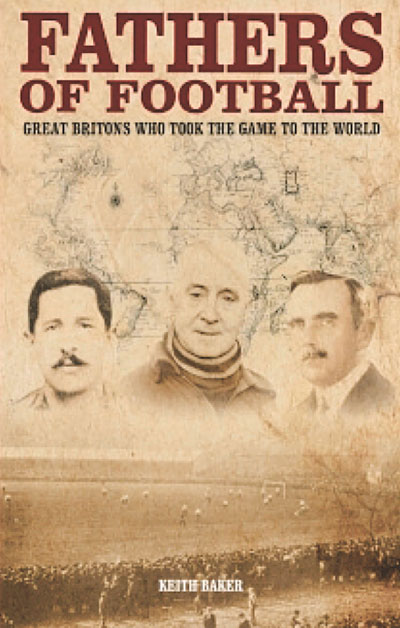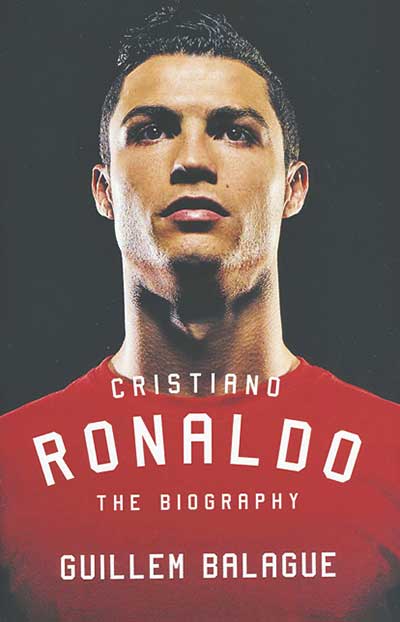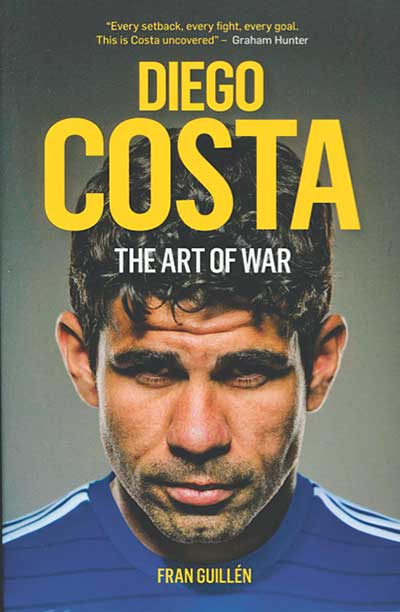 Great Britons who took the game to the world
Great Britons who took the game to the world
by Keith Baker
Pitch Publishing, £12.99
Reviewed by Paul Brown
From WSC 341 July 2015
Buy this book
Britain did not invent football, as Sepp Blatter would no doubt remind us, but it did knock it into shape, drawing up rules, forming clubs, organising competitions and sending the association version out into the world. British migrants, travelling with Laws of the Game pamphlets and deflated leather casers in their suitcases, became football missionaries, teaching and inspiring new converts, and sowing the seeds for what would become an international obsession.
In Fathers Of Football, Keith Baker profiles several of these pioneers of the world game, many of whom remain relatively unknown in their home country. Take James Spensley, who left Britain in 1896 to work for an insurance company in Genoa. Today, Spensley has an Italian park, street and junior football tournament named in his honour. His great contribution to football in Italy began when he persuaded the expat Genoa Cricket and Athletic Club to take up the association game (and to admit non-British members).
Spensley became the club’s goalkeeper, captain and de facto manager, leading Genoa to six Italian championships between 1898 and 1904. Their success saw the club renamed the Genoa Cricket and Football Club – a name they retain today. The influence of British pioneers can be seen in the Anglicised names of several international football clubs: Genoa rather than Genova; Milan rather than Milano; Athletic rather than Atlético.
Some of the individuals profiled here may already be familiar to football readers. Charles Miller is popularly regarded as the father of football in Brazil, and was the subject of various colour pieces during last summer’s World Cup. Alexander Hutton is similarly regarded in Argentina. Meanwhile Jimmy Hogan’s incredibly influential contribution to the development of football in Austria and Hungary (via the Netherlands, Switzerland, France and Germany) is well documented, although it remains a remarkable story.
More obscure are the Charnock brothers, Clement and Harry, who do not have so much as a Wikipedia entry between them, despite the role they played in the development of football in Russia. The brothers, from Lancashire, travelled to Moscow around 1890 to manage textile factories. Both men encouraged their employees to take up football and inspired the formation of several clubs, despite state opposition to organised activities involving workers. Harry’s OKS (Orekhovo Sports Club) were a founding member of the Moscow League, and won five consecutive championships between 1910 and 1914, playing in front of crowds of around 15,000. However, after the Revolution in 1917, OKS were placed under the control of the Cheka – a forerunner of the KGB. The club were renamed Dynamo Moscow, and the Charnocks were expunged from their history. They deserve to be better remembered.
Baker makes it clear that his “Great Britons” were not solely responsible for the spread of association football around the world, and he places the growth of the game into wider historical and social context. But his concise and informative book pays tribute to their individual achievements, and provides an illuminating record of their contributions to the world game.
Buy this book
 by Guillem Balague
by Guillem Balague  The art of war
The art of war Great Britons who took the game to the world
Great Britons who took the game to the world